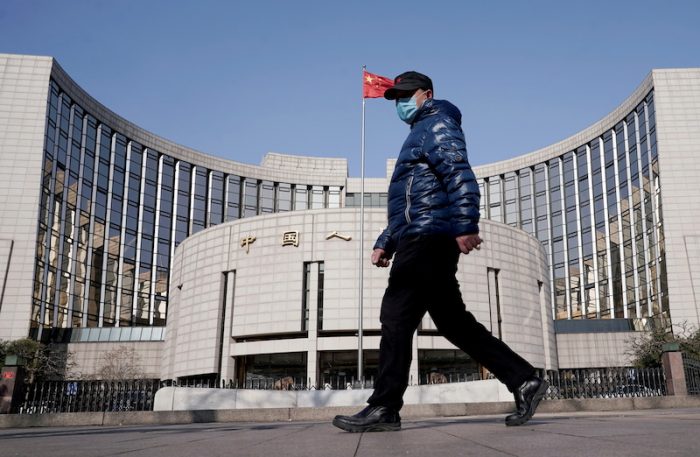China has asked state-owned banks to roll over existing local government debt with longer-term loans at lower interest rates, two sources with knowledge of the matter said.
The move is part of Beijing’s efforts to reduce debt risks amid faltering growth and with two of its biggest property developers on the brink of collapse.
Local government debt reached 92 trillion yuan ($12.58 trillion), or 76% of the country’s economic output in 2022, up from 62.2% in 2019.
Also on AF: Country Garden’s $17bn Offshore Debt on Verge of Default
Part of that is debt issued by local government financing vehicles (LGFVs), which cities use to raise money for infrastructure projects, often at the urging of the central government when it needs to boost economic growth.
Dry coffers could make it harder for Beijing to kickstart its sputtering economy.
Debt-laden municipalities also represent a major risk to the world’s second-largest economy and possibly its financial stability, economists say.
The crisis has largely stemmed from Beijing’s years of over-investment in infrastructure and costs piled up from efforts to contain the Covid-19 pandemic.
The deepening property crisis has added to the pressure on municipalities, with developers in no shape to buy new plots of land, traditionally a key source of local revenue, and sales flat because home prices have been slipping.
Since the sector’s debt crisis unfolded in mid-2021, companies accounting for 40% of Chinese home sales have defaulted, most of them private developers.
View this post on Instagram
Banks asked to issue fresh loans
Last week, the central People’s Bank of China (PBOC) ordered major state lenders to extend terms, adjust repayment plans, and reduce interest rates of outstanding loans to LGFVs, sources say.
Loans that were originally due in 2024 or before will be categorized as “normal” instead of non-performing loans if overdue. That, effectively, will not affect banks’ performance evaluations, one of the sources said.
To ensure banks do not incur heavy losses from the debt restructuring, interest rates on rolled-over loans should not be below China’s Treasury bond rates, one source, adding that loan terms should not exceed 10 years.
China’s benchmark 10-year government bond is now yielding around 2.7%, while the benchmark one-year loan prime rate is 3.45%.
Banks are also being encouraged to issue new loans to LGFVs to repay bonds and non-standard debt, the sources said.
Additionally, the PBOC will set up an emergency tool with banks to offer loans to LGFVs to solve any short-term liquidity stress, the two sources said. LGFVs will need to repay the loans within two years, a second source said.
Beijing staying cautious
The PBoC said it will prioritise resolving debt risks in 12 regions identified as “high risk”, including Tianjin city, Guizhou province and Guangxi province, with a focus on open market bonds and non-standard debt products due this year and next year, the sources said.
In the 12 high-risk regions, some local governments will need to pledge or transfer part of their stakes in local state-owned companies to banks in exchange for assistance from banks to roll-over loans, the second source said.
Last year, a Chinese government financing unit in the southwestern Guizhou province extended loans worth $2.3 billion by 20 years, which adjusted interest rates to between 3% and 4.5% per year.
Despite the mounting local government fiscal mess, China’s central government has taken a cautious stance on resolving their debt issues to avoid risks of moral hazard: Investors could be encouraged to take even greater risks if they assume Beijing will always come to the rescue of local governments or state companies.
China’s Politburo, a top decision-making body of the ruling Communist Party, said in late July said it would announce a basket of measures to reduce local government debt risks, but no detailed plans have been officially unveiled yet.
- Reuters, with additional editing by Vishakha Saxena
Also read:
Fears of China’s ‘Japanization’ Weigh On Asia Economic Outlook
Multiple Moves Needed to Defuse China’s Local Debt Crises
China’s $13tn Provincial Debt Crisis Threatens to Spill Over
China’s Property Sector Will Remain Weak For Years: Goldman
Over 100 Chinese Cities Battling to Repay Their Debts: Rhodium
Zoo’s Food Plea Highlights China’s Local Debt Crisis – CNN
























